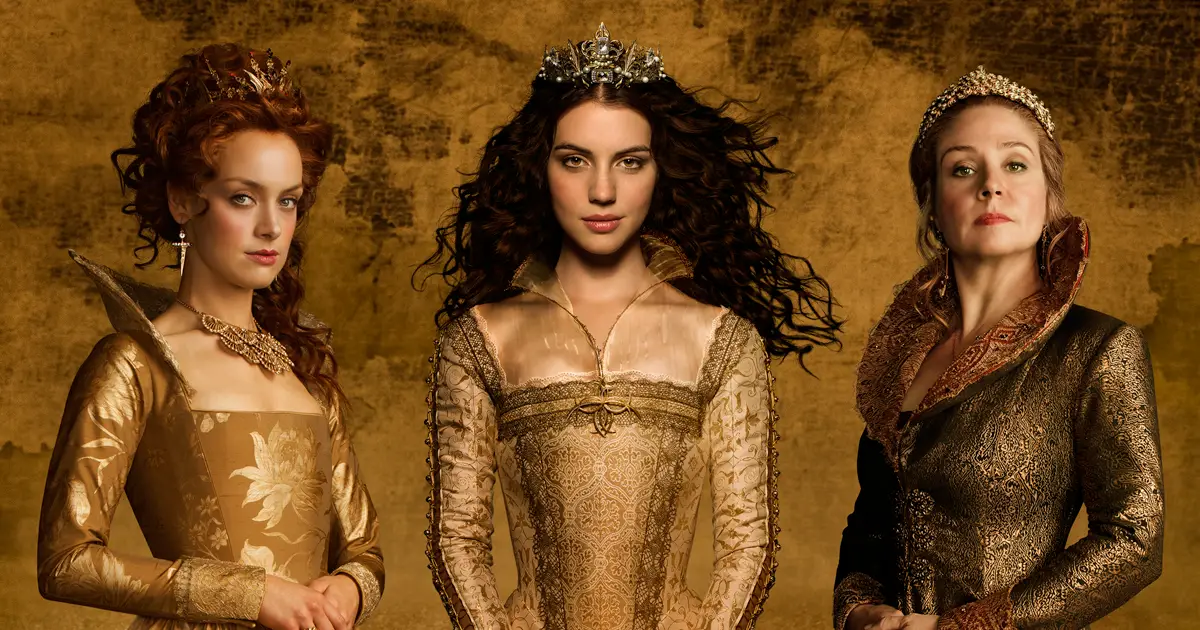I’ve never been very good at keeping up with television shows. Even growing up, I didn’t watch shows consistently, but perhaps this is because I was more of a book nerd than a TV junkie. If an episode of a show I enjoyed was playing when I turned on the TV, then I’d watch for a little bit and, if I had some downtime, I’d pull up an old episode of a program I liked on my computer. But, sticking with a show, watching it while it was currently airing or shortly thereafter, just wasn’t my style. Or at least until I started watching “Reign.”
In 2013, I just so happened to tune into the CW in time for the pilot. I’d seen a couple of ads for the show and thought, why not? Immediately, I was hooked. And now, four seasons and seventy-eight episodes later, it’s all over and I finally understand what it means to truly mourn the loss of a quality television show.
“Reign” was a complex show unlike anything I had ever watched, but it was a show that tended to fly under the radar. There’s a fairly high likelihood that you haven’t heard of it, let alone seen an episode. So, allow me to summarize briefly for you (without including any spoilers). “Reign” chronicles the early life of Mary, Queen of Scots, as she rises to power and ultimately rules, first in France and then in Scotland. The show begins in the year 1557, and is a fictionalized and dramatized storytelling of her tumultuous rule, sticking to the important, historical accuracies while taking ample creative liberties.
“Reign” managed to make characters and situations from the sixteenth century relatable. It drew from me a passion for European history that I didn’t even know I could have and taught me lessons I didn’t think a television show could teach a young person. Simply put, it was educational and brilliant.
The most surface-level, important lesson that “Reign” taught me was that a woman with power is a force to be reckoned with. There are three female queens throughout the four seasons of the show–Mary, Queen of Scots; Queen Elizabeth of England; and the Queen Mother and temporary regent of France, Catherine de Medici. They rule during a period in which women did not have fundamental rights. Instead, the fairer sex were seen as the property of their husbands and in many circumstances, could not have property of their own.
Even queens, who had the highest hierarchical position a woman could have in the 1500s, faced many limitations due to their gender. They only held any official political power if they never married or if their husbands died before them. They married for political alliances, not for love, and often had little or no say over the matter. If a woman lost her virginity or was raped before marriage, even a queen, she was seen as unfit to marry anyone.

This society, which was built to break women down, is one in which the three leading ladies thrive. They outwit their male opponents and act decisively despite their gender when dealing with political matters. When noblemen try to use the fact that they are female to limit their power or criticize their decisions, Mary, Elizabeth and Catherine are always ready with an intelligent reply or a brilliant course of action.
All three of them have different personalities, motivations and goals. But something they all have in common is that they constantly assert that yes, they are female, and no, that does not affect their ability to rule. At the end of Season 4, Elizabeth says that Mary is “besieged on all sides by a world of men who seek to tear her down because they cannot control her.” If this doesn’t sum up the thesis of the show, I don’t know what does.
“Reign” also gives viewers a lesson in empathy. Since the kings and queens are the wealthiest and most powerful people in their time periods, one would assume their lives would be relatively easy and problem-free. However, the show illustrates that in many ways, the actions of the royals were constrained and predetermined, and they often lived lonely and stressful lives. It also gives insights into the lives of the lower class characters.
Besides struggling to make ends meet and having little opportunity to move up in station, these characters were disrespected and often ignored by their rulers. However, Elizabeth mentions how she wished she were free to love and travel like the peasants do, not limited by her crown. “Reign” shows that every person has flaws and their own set of problems, and that it serves humanity well to remember that and treat each other kindly.
“Reign” also touches upon more serious issues, such as religious tolerance, mental health and sexual assault. Because “Reign” is set in a time and place where Protestantism and Catholicism were seen as threats to each other, many characters in the show fight for and die for their beliefs. “Reign” demonstrates the importance of tolerance through its characters and plot.
In addition, many of the characters suffer from depression or some other form of mental illness. The fact that these royals suffer from mental illness regardless of their wealth and power is enlightening for the audience; it teaches them that no one is above mental illness, but also that with love and support, one can overcome it. One of the most painful scenes to watch in “Reign” happens in Season 2, when one of the main characters is raped. This shapes much of the plot of Season 2 and helps viewers–many of whom have never dealt with this personally–to understand how hard that kind of trauma is to go through and what the process of recovery is like.
“Reign” brings many important issues to the table, forcing viewers to discuss them while also providing a highly entertaining narrative. I laughed and cried along with the characters on the show, learning so much as I did. I can only recommend that you’ll give yourself the opportunity to learn and grow by watching “Reign,” as well.


















[…] In ‘Reign,’ Historical Feminism Finds an Attentive Audience. (2017, June 23). Retrieved November 04, 2017, from https://studybreaks.com/2017/06/23/reign/ […]
[…] I write this, I have season 2 playing. For all of its CW-ness, I find it perfectly entertaining and really quite feminist in its message. The show is well written, as a whole. It’s also more historically-accurate than I ever […]
[…] very busy this week so I didn’t get the time to write an entire blog post so I referenced here for this […]